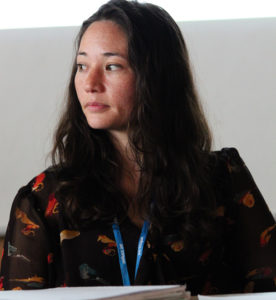As political momentum on climate change continues on a high after the emergence of the Paris Agreement last December and its signing in April, countries gave their opening statements in a plenary session on the first day of the UN climate talks going on in Bonn, Germany.

Focused on rule-making for the new global climate regime amid efforts to ramp up short-term ambition to tackle climate change, negotiators set out their stalls ahead of two weeks of negotiations.
Civil society players, who believe there is no time to lose, appear to be hopeful.
“It was announced today that last month was the hottest April ever, which means we have now experienced seven months in a row of months breaking temperature records,” says Teresa Anderson from ActionAid.
She adds: “As the hottest El Nino ever bites across the world, 60 million people are expected to face its impacts this year in the form of heatwaves, droughts and famine. In Paris, governments agreed to limit global warming to 1.5°C above pre-industrial levels. This number may prove to be the planet’s lifeline, but only if we choose to pick up that lifeline, grab it with both hands, and follow it to its necessary conclusion. We need much greater ambition to radically and fairly cut emissions, delivered much faster than the national pledges currently on the table.”
“We are seeing some positive signs,” says Alden Meyer from the Union of Concerned Scientists. “177 parties have signed the Paris Agreement and 16 have already deposited instruments of ratification. Outside the UN process the renewable energy revolution is unfolding, and financial flows are shifting towards low carbon development – but the question is whether this is happening fast enough to keep pace with changes in the physical environment. Negotiators have an opportunity in Bonn to speed things up by developing the rulebook for the Paris Agreement, working to build capacity for a major increase in both pre- and post-2020 ambition, and putting the spotlight on efforts to ramp up support for adaptation and loss and damage ahead of the COP in Marrakesh.”
“Today the new Moroccan Presidency labelled COP 22 in Marrakesh the ‘COP for action’ which is good a start,” says Anoop Poonia from Climate Action Network South Asia. “This year we need action to develop a roadmap that delivers the long-promised $100 billion in climate finance. In the process negotiators must ensure this finance supports both adaptation and mitigation in order to boost the resilience of the most vulnerable countries already experiencing climate impacts. Right now less than $6 billion per year is available for adaptation – this is not enough. Another important task for governments here in Bonn is to get working on the rules for accounting and transparency so that we develop more accurate ways to measure the cost of complex climate impacts and exactly what support falls under the banner of ‘climate finance’ as we move forwards.”
